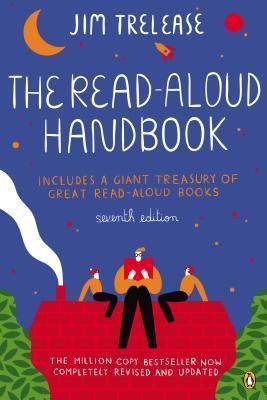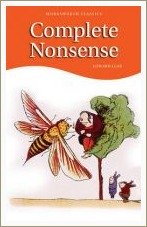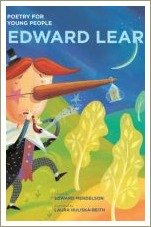|
There was an Old Man with a beard,
Who said, 'It is just as I feared!
Two Owls and a Hen,
Four Larks and a Wren,
Have all built their nests in my beard!'
There was an Old Man in a tree,
Who was horribly bored by a Bee;
When they said, 'Does it buzz?'
He replied, 'Yes, it does!'
'It's a regular brute of a Bee!'
There was an Old Man of Kilkenny,
Who never had more than a penny;
He spent all that money,
In onions and honey,
That wayward Old Man of Kilkenny.
There was an Old Man with a flute,
A "sarpint" ran into his boot;
But he played day and night,
'Till the "sarpint" took flight,
And avoided that man with a flute.
There was an Old Man of Vienna,
Who lived upon Tincture of Senna;
When that did not agree,
He took Camomile Tea,
That nasty Old Man of Vienna.
There was an Old Person whose habits,
Induced him to feed upon rabbits;
When he'd eaten eighteen,
He turned perfectly green,
Upon which he relinquished those habits.
There was a Young Lady whose eyes,
Were unique as to colour and size;
When she opened them wide,
People all turned aside,
And started away in surprise.
There was an Old Man of the Wrekin
Whose shoes made a horrible creaking
But they said, 'Tell us whether,
Your shoes are of leather,
Or of what, you Old Man of the Wrekin?'
There was an Old Man who supposed,
That the street door was partially closed;
But some very large rats,
Ate his coats and his hats,
While that futile old gentleman dozed.
There was a Young Lady of Dorking,
Who bought a large bonnet for walking;
But its colour and size,
So bedazzled her eyes,
That she very soon went back to Dorking.
There was an Old Man of Columbia,
Who was thirsty, and called out for some beer;
But they brought it quite hot,
In a small copper pot,
Which disgusted that man of Columbia.
There was an Old Person of Buda,
Whose conduct grew ruder and ruder;
Till at last, with a hammer,
They silenced his clamour,
By smashing that Person of Buda.
There was an Old Man of the West,
Who wore a pale plum-coloured vest;
When they said, 'Does it fit?'
He replied, 'Not a bit!'
That uneasy Old Man of the West.
There was a Young Lady of Norway,
Who casually sat on a doorway;
When the door squeezed her flat,
She exclaimed, 'What of that?'
This courageous Young Lady of Norway.
There was on Old Man of the Isles,
Whose face was pervaded with smiles;
He sung high dum diddle,
And played on the fiddle,
That amiable Man of the Isles.
There was a Young Person of Crete,
Whose toilette was far from complete;
She dressed in a sack,
Spickle-speckled with black,
That ombliferous person of Crete.
There was an Old Person of Hurst,
Who drank when he was not a thirst;
When they said, 'You'll grow fatter,'
He answered, 'What matter?'
That globular Person of Hurst.
There was an Old Lady of Chertsey,
Who made a remarkable curtsey;
She twirled round and round,
Till she sunk underground,
Which distressed all the people of Chertsey.
There was an Old Man with a gong,
Who bumped at it all day long;
But they called out, 'O law!
You're a horrid old bore!'
So they smashed that Old Man with a gong.
|
There was a Young Person of Smyrna,
Whose Grandmother threatened to burn her;
But she seized on the cat,
And said, 'Granny, burn that!
You incongruous Old Woman of Smyrna!'
There was an Old Person of Chili,
Whose conduct was painful and silly,
He sat on the stairs,
Eating apples and pears,
That imprudent Old Person of Chili.
There was an Old Man on a hill,
Who seldom, if ever, stood still;
He ran up and down,
In his Grandmother's gown,
Which adorned that Old Man on a hill.
There was a Young Lady whose chin,
Resembled the point of a pin;
So she had it made sharp,
And purchased a harp,
And played several tunes with her chin.
There was a Young Lady whose bonnet,
Came untied when the birds sate upon it;
But she said: 'I don't care!
All the birds in the air
Are welcome to sit on my bonnet!'
There was an Old Man of Madras,
Who rode on a cream-coloured ass;
But the length of its ears,
So promoted his fears,
That it killed that Old Man of Madras.
There was a Young Lady of Ryde,
Whose shoe-strings were seldom untied.
She purchased some clogs,
And some small spotted dogs,
And frequently walked about Ryde.
There was an Old Man of Peru,
Who never knew what he should do;
So he tore off his hair,
And behaved like a bear,
That intrinsic Old Man of Peru.
There was an Old Man of Moldavia,
Who had the most curious behaviour;
For while he was able,
He slept on a table.
That funny Old Man of Moldavia.
There was an Old Man in a boat,
Who said, 'I'm afloat, I'm afloat!'
When they said, 'No! you ain't!'
He was ready to faint,
That unhappy Old Man in a boat.
There was a Young Lady of Portugal,
Whose ideas were excessively nautical:
She climbed up a tree,
To examine the sea,
But declared she would never leave Portugal.
There was an Old Man with a nose,
Who said, 'If you choose to suppose,
That my nose is too long,
You are certainly wrong!'
That remarkable Man with a nose.
There was an Old Person of Ischia,
Whose conduct grew friskier and friskier;
He dance hornpipes and jigs,
And ate thousands of figs,
That lively Old Person of Ischia.
There was an Old Person of Dover,
Who rushed through a field of blue Clover;
But some very large bees,
Stung his nose and his knees,
So he very soon went back to Dover.
There was an Old Man of Marseilles,
Whose daughters wore bottle-green veils;
They caught several Fish,
Which they put in a dish,
And sent to their Pa' at Marseilles.
There was an Old Person of Basing,
Whose presence of mind was amazing;
He purchased a steed,
Which he rode at full speed,
And escaped from the people of Basing.
There was an Old Person of Cadiz,
Who was always polite to all ladies;
But in handing his daughter,
He fell into the water,
Which drowned that Old Person of Cadiz.
The was a Young Lady of Bute,
Who played on a silver-gilt flute;
She played several jigs,
To her uncle's white pigs,
That amusing Young Lady of Bute.
There was an Old Man of Quebec,
A beetle ran over his neck;
But he cried, 'With a needle,
I'll slay you, O beadle!'
That angry Old Man of Quebec.
|










